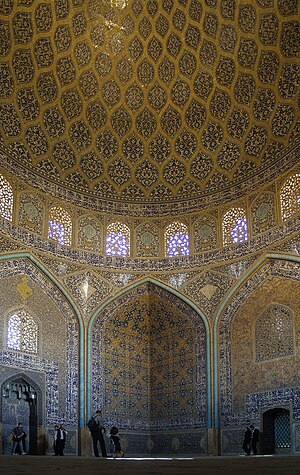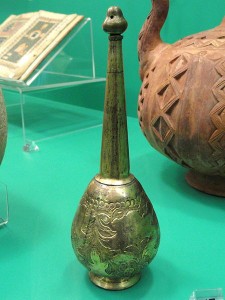A few months back in April, I shared a personal story with SevenPonds about my uncle’s passing and how we honored and remembered his life through a contemporary Iranian memorial service. Contemporary Iranian ways are different from those of Islamic tradition. The majority of Iranians presently residing in their homeland of Iran still practice traditional Iranian memorial services, which are based around Islamic prescriptions. There are many specific rules and steps involved in such traditions, starting with the timing of the burial and preparation of the body.
The body of the deceased should be buried within 24 hours and washed in accordance with Islamic scripture, some of which dates back to traditions used by Zoroastrians.
The first and most important step in the burial is the ‘washing process,’ which is almost always performed by a Muslim of the same sex as the deceased, called the mordeh shoor. Sometimes, family members decide to perform the washing process for their loved one themselves. After the body is washed, it should be scented with camphor (Kafoor) and wrapped in a long white sheet (Kafan). During the washing, the ablutions are performed, which consist of three specific washes with each solution, for a total of nine ablutions. Loved ones pray throughout the washing process, asking Allah for forgiveness for sins that the deceased may have committed. Finally, the deceased’s clothing is donated to the mordeh shoor as charity.
The natural burial has many specific religious rules as well.
Graves are only dug by grave diggers at night, and burials only take place during the day. The prayer of fear, Namaz Wahshat, is performed by family members the night of the burial. Another important detail is the positioning of the body – which should always face Mecca (Ghebleh). Family members, starting with men, all participate in throwing a fistful of soil from the ground next to the deceased burial on the grave. This shows their connect and unity with the earth and is considered a blissful act. Islamic verses are recited at this time as well, the most common being – ‘one always returns to Allah and ends with Allah’ (En alaheh Rajeona). Rose water is sprinkled on the grave and the loved ones of the deceased are encouraged to cry and express grief. Usually at this time candles are lit, and tea and sweet appetizers, such as dates, halva, and fruit are provided. So as you can see, the traditional Islamic memorial is very different from the modern version, but both are filled with meaning in their own way. Today, many modern Iranians still incorporate bits and pieces from the traditional customs. Both traditions hold an emphasis on love, support, and respect for family members, especially the elders.

Sheikh lotfollah (or lotf allah) mosque (1602-1619), Isfahan, Iran. architect: muhammad reza ibn ustad hosein banna isfahani. (Photo credit: Wikipedia)

 Traditional Iranian Memorial
Traditional Iranian Memorial



 “Help Me, Helen”
“Help Me, Helen”
 Recovering Cremation Remains After the Los Angeles Fires
Recovering Cremation Remains After the Los Angeles Fires
 “As Tears Go By” by Marianne Faithfull
“As Tears Go By” by Marianne Faithfull














